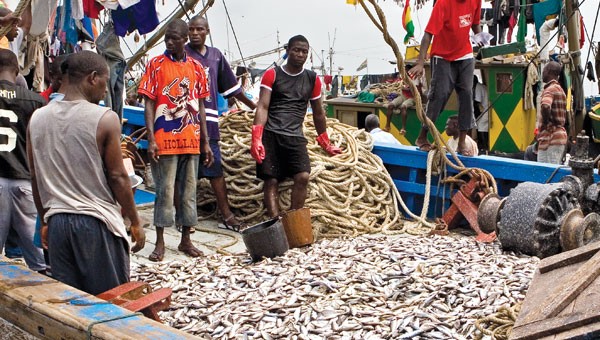Fisheries and Aquaculture Development Minister, Mavis Hawa Koomson, has signalled the country’s intention to join the Fisheries Transparency Initiative (FiTI), a global body that focuses on public access to information for thematic areas of marine capture fisheries.
To this end, minister Mavis Hawa Koomson presented an official commitment letter to the FiTI International Board Chair, Dr. Valeria Merino, during a side-event at the Committee on Fisheries’ (COFI36) 36th session in Rome recently.
Membership of FiTI will afford the country an opportunity to provide detailed public access to information for fishers – including data on fishing licences, vessel registry, catch data, subsidies and beneficial ownership.
FiTI ensures transparency in the fisheries sector for national governments, enhanced through making data available in the public domain and ensuring stakeholders can draw reliable conclusions from them.
With this commitment, Ghana seeks to collaborate with relevant regulatory institutions, industry and fisheries Civil Society Organisations (CSOs) to improve accessibility and transparency in marine fisheries management, in accordance with FiTI standards, the minister stated.
This country becomes the first to implement FiTI within West Central Gulf of Guinea, taking a leadership position in the region.
As fisheries’ sustainability is currently being compromised globally, the Ministry of Fisheries and Aquaculture Development’s move, we believe, is designed to end marine resources overfishing in order to promote sustainable fisheries.
According to latest reports on the ‘State of World Fisheries and Aquaculture 2020′ from the United Nations’ Food and Agricultural Organisation, more than 34 percent of global fish stocks are already fished at biologically unsustainable levels.
The same report noted it is likely Sustainable Development Goals (SDGs) target 14.4 (to end overfishing of marine fisheries by 2020) has not been achieved.
Indeed, FiTI argues that governments have a fundamental obligation to manage fisheries responsibly on behalf of citizens as a public asset.
Ensuring that fishing and fish trade contribute to income, employment, food and nutrition for millions of people while conserving marine biodiversity for present and future generations is the most viable option open to any nation, particularly coastal dwellers.
FiTI observes that some governments fail to disclose even basic information on their fisheries sector – such as laws, permits, fish agreements, stock assessments, financial contributions, catch data and subsidies – including reporting on catch volumes, fishing practices and payments to governments.
The move to join FITI demonstrates the country’s willingness to adopt international best practices in fisheries.










